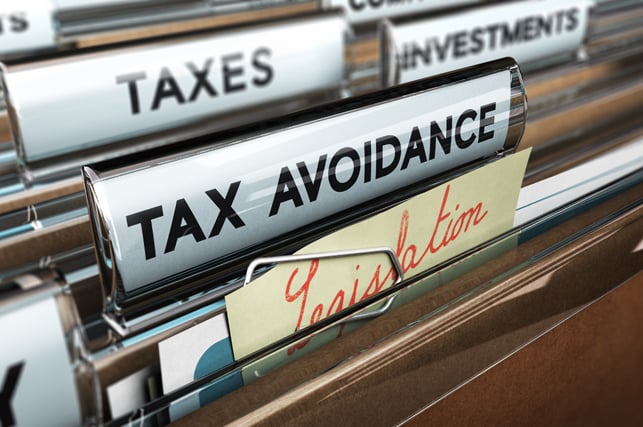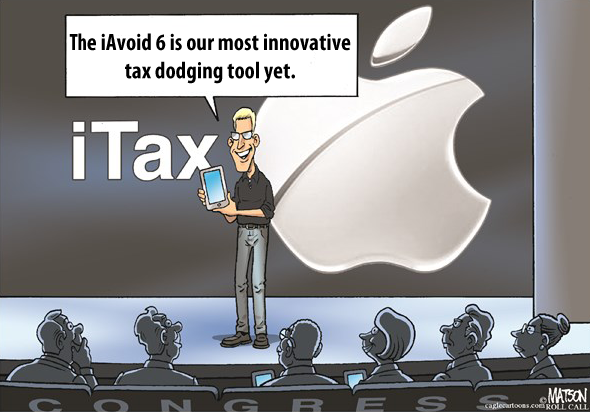Remember the childhood game telephone? One person would whisper a phrase to the next person, who would whisper to the next person and so on until the final person received the message. The goal of the game is for the final person to repeat the phrase verbatim, but usually the message gets garbled along the way.
Well, it seems a blog post published earlier this week by ExxonMobil CEO Darren Woods has turned into a game of telephone. Woods said the company “will invest over $50 billion over the next five years… in the United States” and added that these investments are “enhanced by” tax cuts enacted by Congress last month.
Never one to let the truth get in the way of a good story, House Speaker Paul Ryan immediately published a press release with the headline, “ExxonMobil to Invest an Additional $50 Billion in the U.S. Due to Tax Reform.” The statement was completely faithful to ExxonMobil’s statement, except for the words “additional” and “due to tax reform.” Not to be outdone, President Trump implied during his State of the Union address that the company was investing $50 billion in response to the new tax law.
But a closer examination of ExxonMobil’s recent history of domestic spending finds that the “new” $50 billion investment is less than what the company invested over the previous five years.
ExxonMobil’s latest financial report includes a disclosure of the company’s annual capital and exploration expenditures, which makes it easy to come up with a baseline against which to judge the company’s new $50 billion promise. In 2011, the company spent $11.6 billion in the United States on capital and exploration, ramping this figure up to $12 billion in 2012. In the following three years, the company’s annual spending remained steady at $11 billion, $12.4 billion and $10.9 billion, before the falling price of oil pushed spending down to $6 billion in 2016.
In other words, over a five-year period at the beginning of the decade, when oil prices were generally high, ExxonMobil spent about $58 billion on capital and exploration in the United States, a number that is actually larger than what CEO Woods just announced for the upcoming five-year period.
When the company’s spending fell by 40 percent in 2016, sensible observers attributed the decline to the plummeting price of a barrel of oil. And now that oil prices are once again rising rapidly toward 2010 levels, it shouldn’t be surprising that ExxonMobil and its competitors are ramping up fossil fuel spending once again.
ExxonMobil Paid Little in Corporate Income Taxes to Begin With – Just 13.6 Percent Over Eight Years
No one attributed Exxon’s declining capital spending in 2016 to any feature of our tax system because the more plausible explanation was oil prices. Also, the former 35 percent statutory corporate tax rate was an abstraction for the company. As ITEP’s research has found, the oil giant has managed to shelter more than half its U.S. profits from tax for the better part of a decade. Between 2008 and 2015, ExxonMobil paid a federal tax rate of just 13.6 percent on $60 billion of domestic profits. The federal tax rate hardly prohibited the company from making whatever domestic investments it wanted in the last decade.
Since the new year, a number of corporate leaders, sensing public antipathy toward the new tax cuts (to say nothing of public antipathy to big multinational corporations), have engaged in a charm offensive designed to convince American workers that the biggest corporate giveaway in a generation includes a little something for them as well. But the biggest actors on this stage have studiously avoided making specific claims about whether the tax cuts will meaningfully change their hiring and spending plans. Apple’s virtually content-free press offensive earlier this month was a master class in making untestable promises. ExxonMobil’s recent announcement follows in Tim Cook’s disingenuous footsteps, implying that the company is opening its pocketbook in response to the Trump tax cuts without making even one specific claim about investment decisions that were prompted by the new tax regime.
It’s worth remembering that ExxonMobil is not new to this game: as Bloomberg pointed out last year, a similarly splashy post-election promise of $20 billion in spending appeared to include projects that had already been in the works since 2013.
ExxonMobil’s smooth PR strategy abetted Speaker Ryan and President Trump’s improbable claims that the corporate tax giveaway has had an instantaneous effect on corporate investment and worker pay. But the American public has already signaled its distrust of big corporations and the elected officials who bucked public opinion and passed historically unpopular tax cuts that will mostly benefit corporations and the wealthy. Exxon’s empty promises will likely reinforce that distrust.





